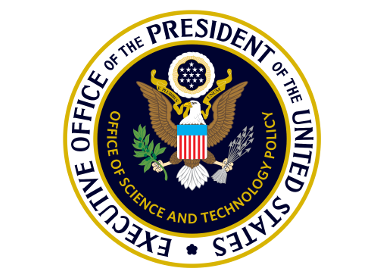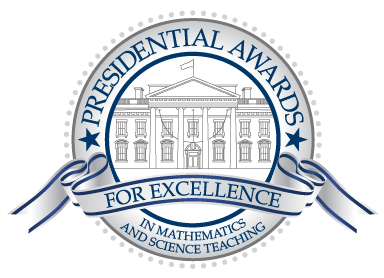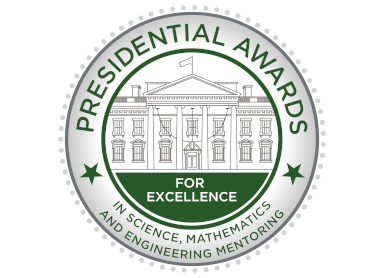Amy Clapp
Salisbury, VT | K-6, Science, 2022

What motivates you to contribute to excellence in STEM teaching?
I am a firm believer that every student deserves an excellent STEM education. Due to the fact that I teach 10 year olds--I have the opportunity to introduce them to so many ideas and areas of science and technology that they don't even know exist before I teach them. This motivates me to excel in STEM teaching because if kids don't learn about science and technology they don't know what opportunities there are for them in the future and it's fun to see them make connections as they learn.
What has been the most transformative moment that affirmed your impact on STEM education?
One of the hardest parts of my job is not always being able to see the impact of my work right away. After my students leave the elementary school where I teach, I likely will see them around town while they completing their schooling, but after 12th grade, I am lucky to run into students at the grocery store, etc. when they are home visiting or even if they choose to settle close by. However, everytime I do run into my former students and they, without fail, tell me about how much they enjoyed learning in the forest in the outdoor classroom I build, or the science experiments they did in my class, I am affirmed over and over again that I choose the right profession and that I am having an impact.
Using your platform as a Presidential Awardee, how do you hope to advance our nation in STEM?
I hope that I can use this award to continue to educate and inspire young people to connect with their natural world. Young people are spending less and less time outside, and one of the consequences of that is that they don't connect with the plants, animals, and non-living things that make up the ecosystem that they are an integral part of. It is only when people, young and old, feel connected will they take action to protect the natural environment.
Biography
Amy Clapp has been an elementary educator for more than 25 years at Salisbury Community School and for over six years has taught all subjects of fourth grade. In the past, she has served as a science specialist in kindergarten through sixth grade and has taught fifth and sixth grades. She has also served as the Science Curriculum Coordinator for her school district. Connecting students with the outdoors is Amy’s passion and she has developed an outdoor classroom that is used by her students and allows colleagues to develop their own outdoor learning spaces. Her class collaborates with the local Audubon Society to coordinate a schoolwide bird-a-thon each year to raise money for the Audubon’s school programs. After completing a Fund for Teachers fellowship in Costa Rica, she published a beginner’s nature guide, titled Naturally Literate, that is used in schools across Vermont. She shares her expertise in outdoor learning through collaboration with Middlebury College’s teacher program and the Vermont Science Teachers Association. Using field work to teach science concepts is central to her teaching and an integral part of Amy’s professional development. She participated in climate change field work in the Siberian, United States, and the Canadian Arctic through a collaboration between the Arctic Research Consortium of the United States and NSF. In addition to integrating climate change science into lessons with her students, she presented sessions and was the keynote speaker at an NSTA national conference, state conferences, and at the Museum of Science, Boston. Amy earned a B.A. in anthropology from Colby College, a B.S. in elementary education with certification from the University of Montana, and an M.S. in elementary science education from the Vermont State Colleges.
High-resolution version of the teacher profile photograph
The views expressed in awardee profiles are those of the author and do not necessarily reflect the views of NSF or the PAEMST program.



